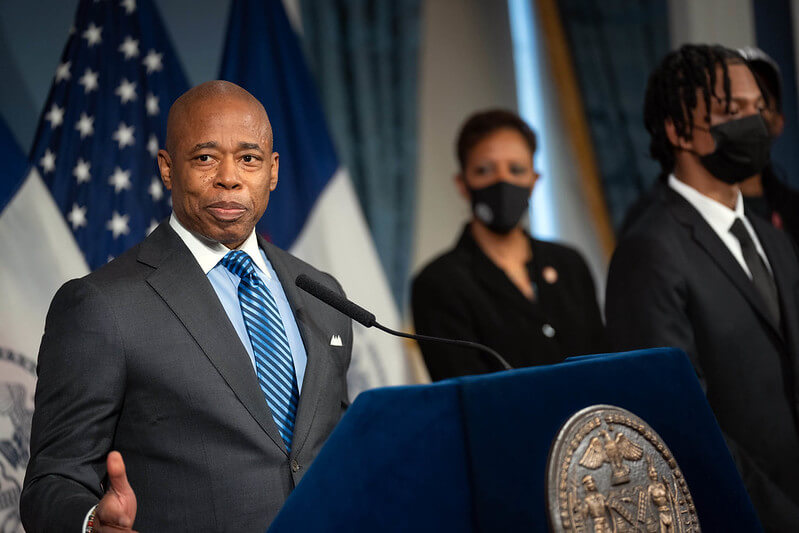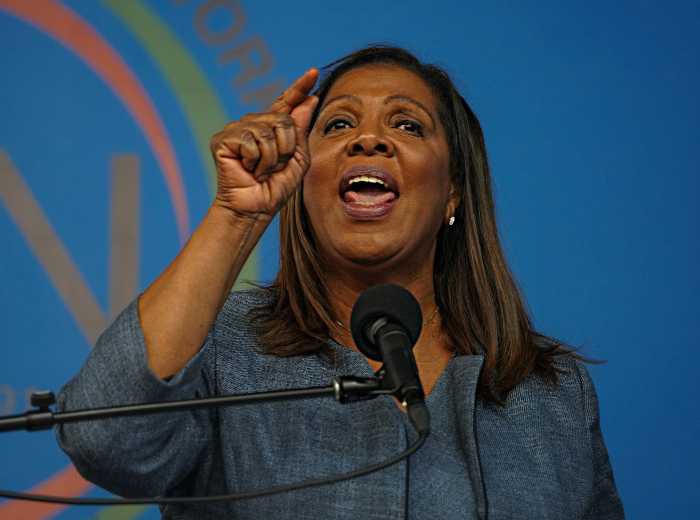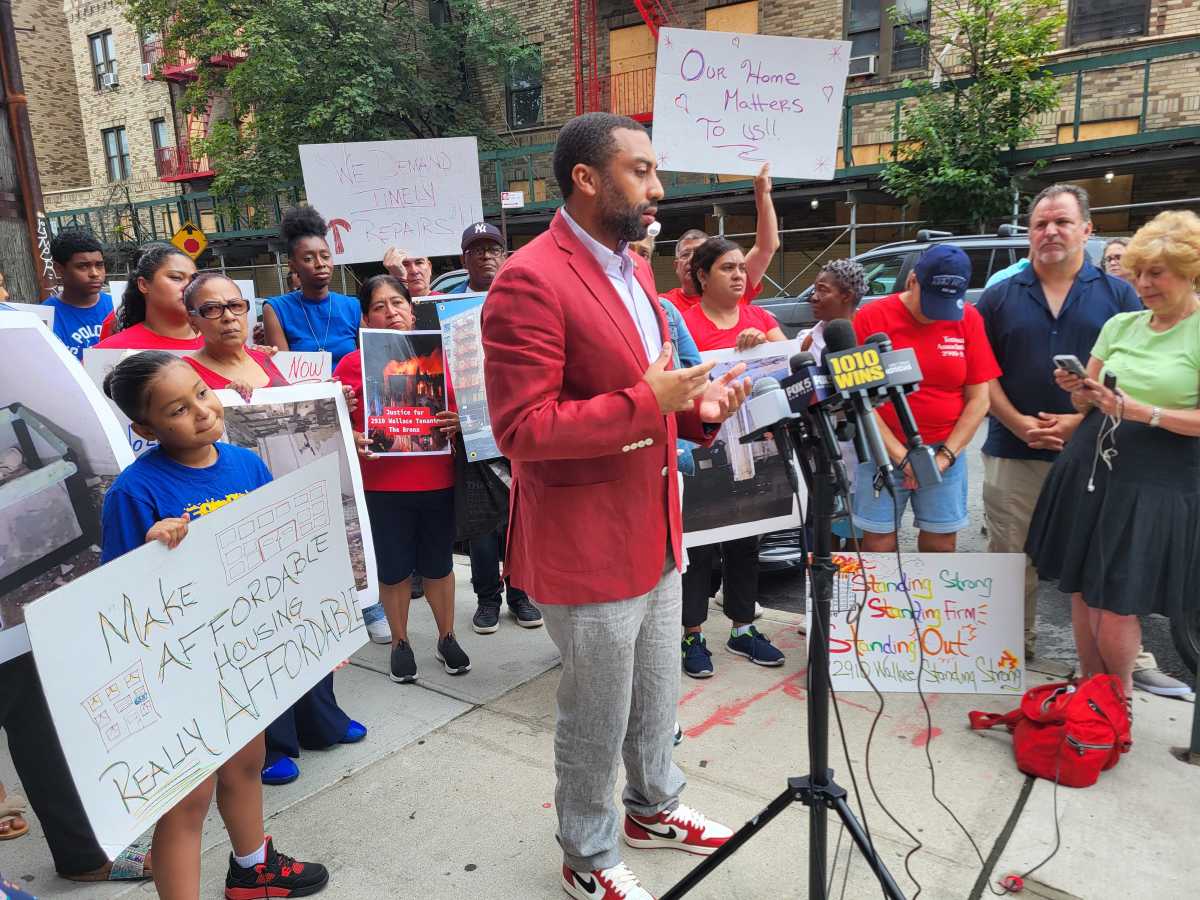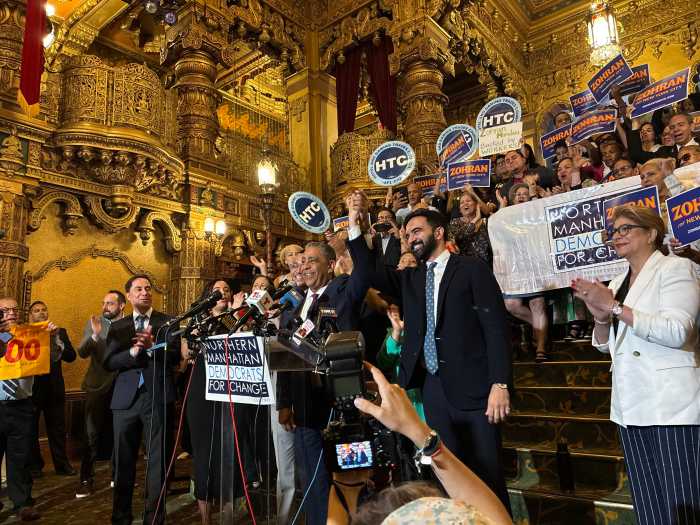Mayor Eric Adams unveiled his $98 billion preliminary budget for fiscal year 2023 this afternoon, which he said will focus on promoting public safety and speeding up the city’s economic recovery from COVID-19.
“New York has always been a city of the future,” Adams said. “And today, we are here to plan for that future. It means building a city where safety and justice go hand-in-hand. A city where our children can play, read and thrive. Where education embraces the whole child and supports our families. A city where we embrace the progress being made in new forms of energy, transit, and commerce. A city of abundance of jobs, housing, and health care for all. This is the city New Yorkers want and deserve.”
But Adams said his vision for a better city can only be realized if his administration decreases excess spending, which is something it has already been working on. This is something Adams’ administration took action on after his first 10 days in office, he said, by ordering all city agencies to trim down 3 percent of their fiscal year 2022 and 2023 budgets.
As a result, Adams said, the city has cut over $2 billion in spending and will head into the new budget season with a reserve of over $6 billion.
“ My administration is laser focused on fiscal discipline,” Adams said. “We’re not spending our money. We’re spending your money. And we will make decisions that invest in our city and benefit all New Yorkers. We will be radically practical. Success will be measured by how much we accomplish, not how much we spend.”
Adams credited the cost cutting to his Chief Efficiency Officer Melanie LaRocca, who’s leading the effort to cut excess spending in the city bureaucracy. Her work includes reducing the number of city agencies by consolidating those with similar focuses. For instance, Adams said he recently signed an executive order to combine all the city agencies dealing with technology into the newly created Office of Technology and Innovation.
When it comes to actually spending the money in this year’s preliminary budget, Adams said public safety is one of his top priorities. In particular, that means reducing crime overall and battling what he described as an “epidemic” of gun violence.
“The NYPD is our first line of defense against gun violence,” Adams said. “We will make new efforts to strengthen and reinforce it, while continuing our mission to involve the community. We have already started putting more officers on patrol and enhancing our existing public safety units with new neighborhood safety teams, which will focus on gun violence.”
Additionally, Adams’ administration will invest in longer-term solutions for reducing gun violence like directing funds to improve education, services for unhoused people, and mental health programs.
Another one of Adams’ budget priorities, he said, is bolstering the city’s economic recovery from the pandemic by investing more money in supporting working class families.
“This wise management of our resources is allowing us to make historic investments in equity and justice and in safety,” Adams said. “We’re putting money in the pockets of working people.”
He hopes to do this by raising the earned income tax credit, offering property owners a tax abatement to build childcare facilities and giving tax credits to businesses that provide free childcare. These actions, however, will have to be approved by the state legislature first, he added.
Additionally, they’ll seek to make public transit more accessible by providing annual baseline funding to the fair fares program to help low-income New Yorkers get around the city.
Ultimately, Adams said, this preliminary budget will both help the city recover from the devastation of the coronavirus pandemic and enter a new era of prosperity.
“The best city in the world will be even better if we focus on the basics,” Adams said. “New Yorkers and visitors must be safe on our streets, in our subways and schools, and in their homes. Government must work for the people and use taxpayer funds efficiently. Above all, New Yorkers must feel confident and optimistic that their city is working for them, and looking out for their future.”





































